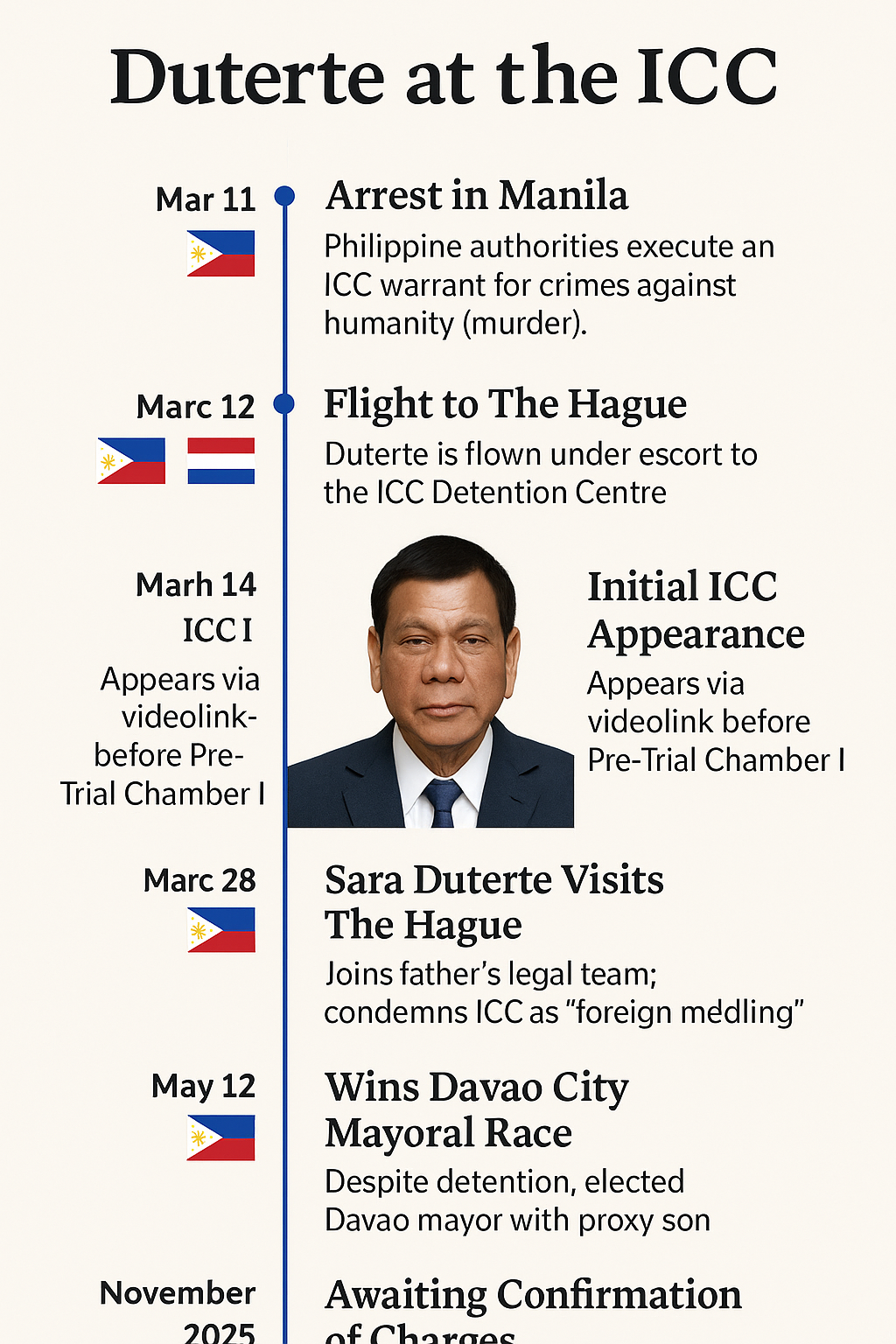The Verdict of History: Duterte and the Shadow of 30,000
For years, it was an open secret, whispered in fear, shouted by activists, and documented by human rights groups. The brutal campaign against drugs in the Philippines under President Rodrigo Duterte was not just a policy; it was a bloodbath. And now, with the recent International Criminal Court (ICC) pre-trial chamber’s findings or the damning conclusions of a major international human rights report (note: adjust based on the specific triggering event you have in mind), it has moved from allegation to a formal, legal assertion: the state-sanctioned killing of an estimated 30,000 people amounts to crimes against humanity.
The question on many minds is: what now? What is the status of the man they call “The Punisher”?
A President Untouchable, A Man Unrepentant
First, let’s be clear about the legal reality on the ground in the Philippines. Rodrigo Duterte, as a former president, enjoys significant political protection. His chosen successor, Ferdinand “Bongbong” Marcos Jr., has explicitly stated that the Philippines will not cooperate with the ICC, effectively shielding Duterte from any immediate arrest or trial within the country’s borders.
Domestically, the machinery of power he built remains largely intact. His daughter, Sara Duterte, is the Vice President, and his allies hold key positions in Congress and the judiciary. Any attempt to prosecute him in a Philippine court is, for now, a political impossibility.
So, in a physical sense, Duterte remains a free man. He appears in public, makes speeches, and continues to wield considerable influence. He has not been contrite; he has been defiant. His rhetoric, though slightly tempered out of office, has never strayed far from its original theme: that the killings were a necessary evil to rid society of the “drug menace.”
The Real Verdict is Not in a Courtroom
But to focus solely on his physical freedom is to miss the point entirely. The current status of Rodrigo Duterte is that of a man being condemned by history in real-time.
- The Moral and Historical Stigma: A formal finding of guilt from an international judicial body is a stain that no amount of political power can erase. History books will not remember him as a controversial reformer, but as a leader accused of presiding over one of the deadliest campaigns of violence against his own people in recent Asian history. This is his new, permanent legacy.
- The International Pariah Status: While he may travel freely within certain allied nations, Duterte is now a de facto international fugitive from justice in 123 countries that are members of the ICC. Traveling to any of these nations would risk arrest. This severely limits his movement and cements his status as a pariah in the eyes of a significant portion of the global community.
- The Unending Grief and the Quest for Justice: For the families of the 30,000 victims, this finding is a devastating validation. They have known the truth for years. Their quest for justice is now amplified, armed with the power of an international legal ruling. Every public appearance Duterte makes is a reminder of their loss, but also a rallying cry for their continued fight. The cries of “Hustisya!” (Justice) will follow him to his grave.
What Comes Next?
The path forward is fraught but clear.
- The ICC Process: The ICC investigation will continue, building its case. While it cannot force an arrest within the Philippines, it can issue a formal arrest warrant. This would be a powerful symbolic act, isolating Duterte and his enablers further.
- The Domestic Struggle: Within the Philippines, the battle is political and societal. Human rights groups, journalists, and opposition figures will use this finding to keep pressure on the Marcos administration and to educate a new generation about the cost of Duterte’s war. The fight is to ensure this chapter is not forgotten or whitewashed.
- A Nation’s Soul: Ultimately, the status of Rodrigo Duterte is inextricably linked to the soul of the Philippines. The nation is left to grapple with profound questions: Can a democracy survive such violence? How does a society heal from wounds inflicted by its own government? The answers to these questions will define the country for decades.
Conclusion: The Walls May Not Be Closing In, But His World Is Shrinking
Rodrigo Duterte may not be in a jail cell today, but he is a prisoner of his own legacy. He is confined by the judgment of international law, haunted by the ghosts of tens of thousands, and forever defined by the brutality he unleashed.
The wheels of international justice turn slowly, but they are turning. And while they do, the world now watches, no longer just suspecting, but knowing. The verdict on the 30,000 is in. And in the court of history, Rodrigo Duterte has already been found guilty.
This blog post is dedicated to the memory of the thousands of victims of the war on drugs and to their families who continue to seek justice.
